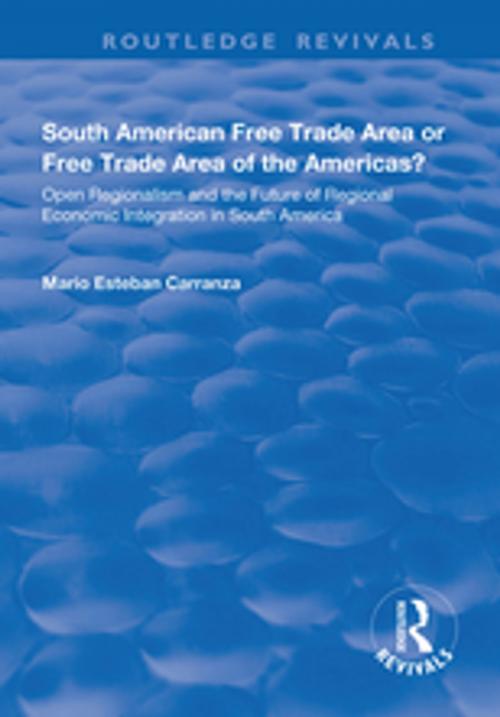South American Free Trade Area or Free Trade Area of the Americas?: Open Regionalism and the Future of Regional Economic Integration in South America
Open Regionalism and the Future of Regional Economic Integration in South America
Nonfiction, Social & Cultural Studies, Social Science| Author: | Mario Esteban Carranza | ISBN: | 9781351753388 |
| Publisher: | Taylor and Francis | Publication: | November 22, 2017 |
| Imprint: | Routledge | Language: | English |
| Author: | Mario Esteban Carranza |
| ISBN: | 9781351753388 |
| Publisher: | Taylor and Francis |
| Publication: | November 22, 2017 |
| Imprint: | Routledge |
| Language: | English |
This title was first published in 2000: This work examines the hemispheric diplomacy after the Summits of the America in Miami (December 1994) and Santiago (April 1998), focusing on the strengthening of the South American position in the FTAA negotiations and the Brazilian proposal for a South American Free Trade Area (SAFTA). The book also looks at the implications of the preceding analysis for regional integration theory and international relations theory. The conclusion looks beyond "open regionalism" and considers three scenarios for US-South American relations after the Santiago Summit. First reassertion of US hegemony and signing of an FTAA agreement on schedule, second, erosion of US hegemony but continuing negotiations between North and South America for a "distant" FTAA, and finally, breakdown of the FTAA negotations and emergence of SAFTA as an alternative to the FTAA.
This title was first published in 2000: This work examines the hemispheric diplomacy after the Summits of the America in Miami (December 1994) and Santiago (April 1998), focusing on the strengthening of the South American position in the FTAA negotiations and the Brazilian proposal for a South American Free Trade Area (SAFTA). The book also looks at the implications of the preceding analysis for regional integration theory and international relations theory. The conclusion looks beyond "open regionalism" and considers three scenarios for US-South American relations after the Santiago Summit. First reassertion of US hegemony and signing of an FTAA agreement on schedule, second, erosion of US hegemony but continuing negotiations between North and South America for a "distant" FTAA, and finally, breakdown of the FTAA negotations and emergence of SAFTA as an alternative to the FTAA.















